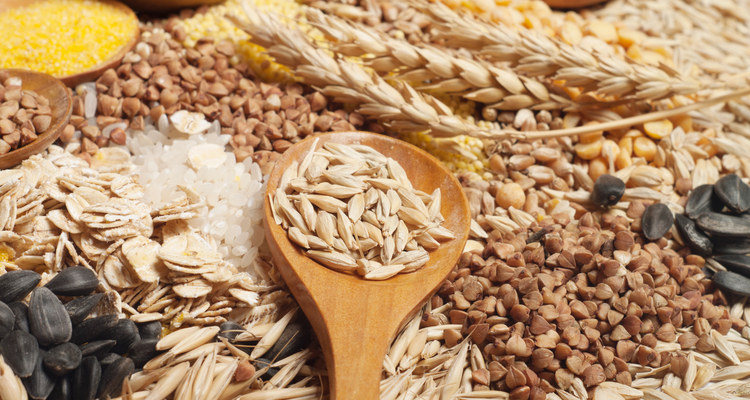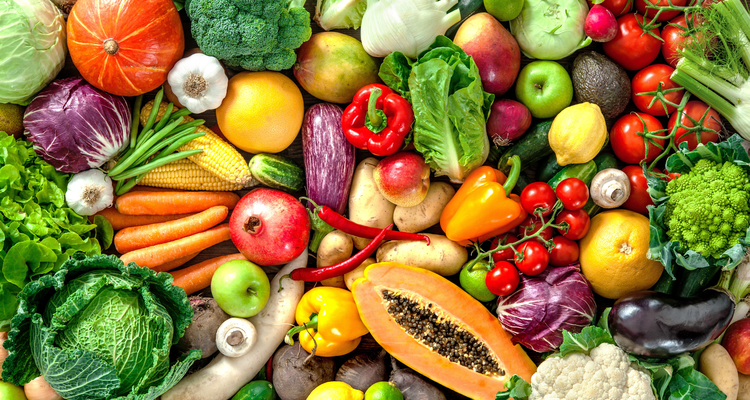shop categories
FREE SHIPPING with any purchase.
3 Kinds of Diet More Harmful Than Smoking

A healthy diet is equivalent to good health. I believe the phrase 'We are what we eat' have been heard for a gazillion times . However, some of us just can’t make a paradigm shift and has yet to change our daily diets . The simple principle of good food helps us sustain a good health, bad food can do the exact opposite. Studies divulge that 50% of the diet-related deaths were caused due to under consumption of healthy foods. There are 3 kinds of eating habits were held responsible for such a disruptive impact on people's health. These eating habits include low intake of whole grain, low intake of fruits and vegetables and high consumption of sodium.

1. Low Intake of Whole Grain
It is advisable to choose whole grain rather than refined grain as whole grains offer a “complete package” of health benefits. Unlike refined grains, the valuable nutrients are stripped in the refining process. All whole grain kernels contain three parts which are the bran, germ, and endosperm. Each section provides distinct health-promoting nutrients. The bran is the outer layer and is rich is fibre. It supplies B vitamins, iron, copper, zinc, magnesium, antioxidants, and phytochemicals. For your information, Phytochemicals are natural chemical compounds in plants that have been proven for their function in preventing disease. The germ is the core of the seed where growth takes place, thus it is rich in healthy fats, vitamin E, B vitamins, phytochemicals, and antioxidants. On the other hand, the endosperm is the interior layer that contains various nutrients such as carbohydrates, protein, and minimal amounts of some B vitamins and minerals.
Why are these components imperative for maintaining health? It is actually because they perform various effects on our bodies. Bran and fibre functions to slow down the breaking down of starch into glucose, which is simplifying complicated compounds into simpler molecules, thus maintaining a steady blood sugar level rather than causing a drastic increase in the blood sugar level. Fibre helps to decrease cholesterol level as well as move waste through the digestive tract or in other words the bowel movement. Moreover, fibre may also help prevent the formation of small blood clots that can lead to heart attacks or strokes. Whole grains can also protect us against some cancers due to the presence of Phytochemicals and crucial minerals such as magnesium, selenium and copper. Thus, an adequate consumption of whole grains is utterly important to maintain good health.

2. Low Intake of Fruits and Vegetables
Greens and fruits are a lot of people’s nightmare when it comes to eating. However, it is always what we dislike the most that is the most beneficial to us. Vegetables and fruits are an extremely essential part of a healthy diet, and bear in mind that variety is as important as quantity. This is because there is no single fruit or vegetable provides all of the nutrients you need to be healthy. A diet loaded with vegetables and fruits can effectively lower blood pressure, reduce the risk of heart disease and stroke, prevent some types of cancer, lower risk of eye and digestive problems, and have a positive effect upon blood sugar, which can help keep appetite in check. Non-starchy vegetables and fruits like apples, pears, and green leafy vegetables promote weight loss. A variety of types and colours of vegetables and fruits gives your body the mix of nutrients it needs. Other than ensuring a wider diversity of beneficial nutrients but also creates eye-appealing meals.

3. High Consumption of Sodium
We always hear people facing health problems because their kidneys have trouble keeping up with excess sodium in the blood. This is because the accumulation of sodium the body holds onto water to dilute the sodium. This increases the amount of fluid surrounding cells and the volume of blood in the bloodstream. Increased blood volume thus leads to more work for the heart and more pressure on blood vessels. In the long run, the extra work and pressure can stiffen blood vessels thus causing high blood pressure, heart attack, and stroke. Eventually, it might also lead to heart failure. There is some evidence that excessive salt can damage the heart, aorta, and kidneys without increasing blood pressure. Some of the diseases that are attributed by excessive salt intake are cardiovascular disease, chronic kidney disease, osteoporosis and cancer.
We always hear people facing health problems because their kidneys have trouble keeping up with excess sodium in the blood. This is because the accumulation of sodium the body holds onto water to dilute the sodium. This increases the amount of fluid surrounding cells and the volume of blood in the bloodstream. Increased blood volume thus leads to more work for the heart and more pressure on blood vessels. In the long run, the extra work and pressure can stiffen blood vessels thus causing high blood pressure, heart attack, and stroke. Eventually, it might also lead to heart failure. There is some evidence that excessive salt can damage the heart, aorta, and kidneys without increasing blood pressure. Some of the diseases that are attributed by excessive salt intake are cardiovascular disease, chronic kidney disease, osteoporosis and cancer.
Thank you.

Follow us on FB now \-\-
facebook.com/signaturemarket
Follow us on Instagram now\-\-
instagram.com/signaturemarket
Related Products
follow
@signaturemarket
- Signature Market
- All Products
- New Products
- Items on Sale
- Stock Clearance
- Best Sellers
- Bulk Packs
- Bundles & Gift Sets
- Merchandise
- Breakfast
- Functional Beverages
- Coffee, Tea & Beverages
- Mueslis
- Granolas & Cereals
- Nut & Fruit Spreads
- Nuts
- Nuts & Trail Mixes
- Raw Nuts & Seeds
- Nut Bars & Bites
- Seasoned Nuts & Beans
- Food
- Organic Seeds & Beans
- Instant Meals
- Spices & Ingredients
- Health
- Wellness
- Sports Supplements
- Honey & Vinegar
- Snacks
- Dried Fruits
- Cookies
- Crackers
- Fruit & Vege Snacks
- Potato Chips
- Savoury Chips & Crisps
- Malaysian Favourites
- Popcorns
- Chocolates
- Jellies & Candies
- Yī (TCM)
- Herbal Soups
- Herbal Desserts & Teas
- Herbal Premier Selection
- Plant Origins
- Bundles & Gift Sets
- Bulk Pack
- Essential Oils
- Diffusers & Accessories
- Room Sprays
- Personal Care
- Skincare
- Care Plus
- Household
- Bunny-U
- Wholesome Meals
- Kiddy Treats
- Bundles & Merchandise
- Two Tails
- Pet Treats
 Same Day
Same Day- Savoury Meals & Bowls
- Beverages & Desserts
- SlimJoy Smoothies
- SlimJoy Shakes & Desserts
- SlimJoy Cut Fruits




















